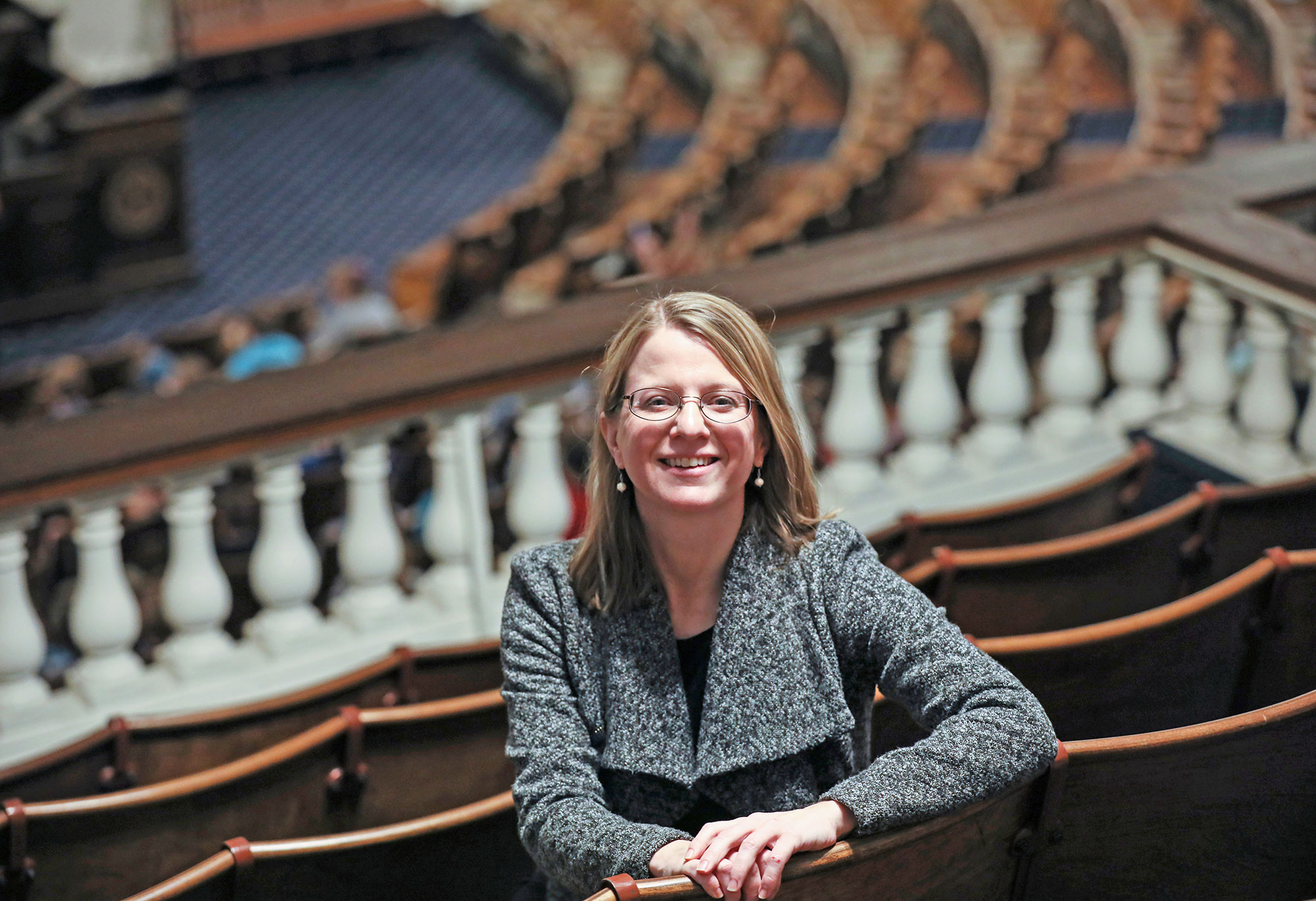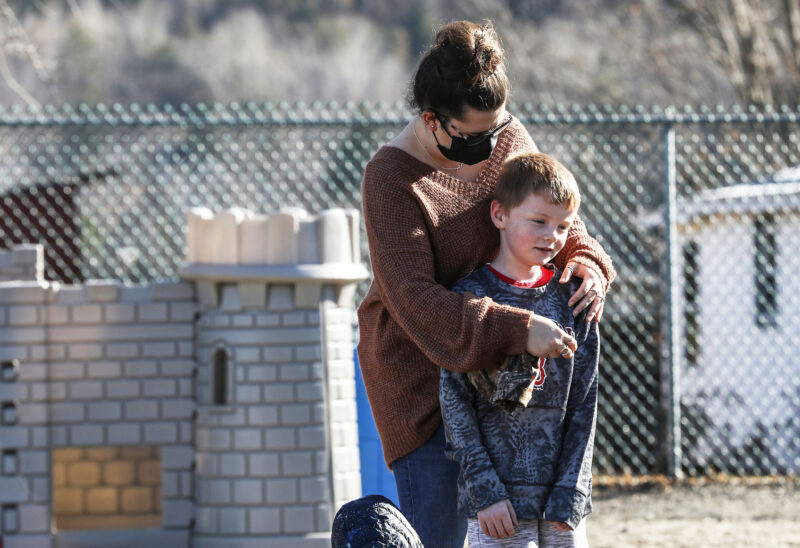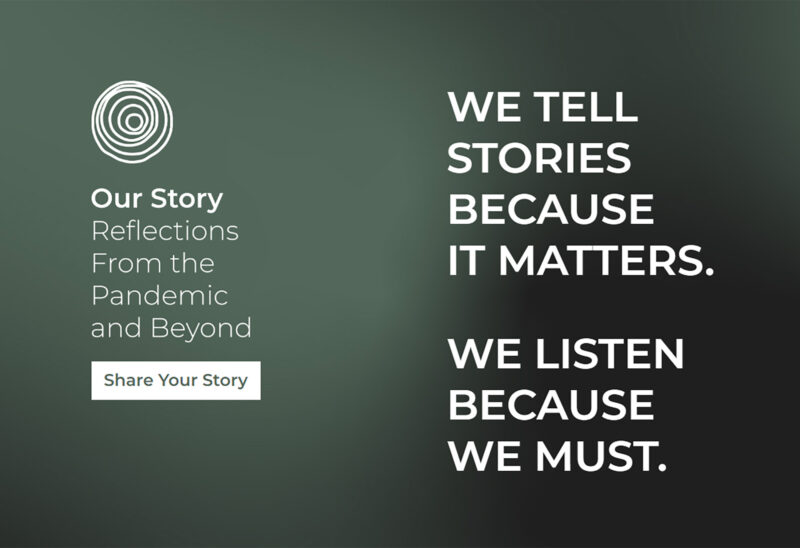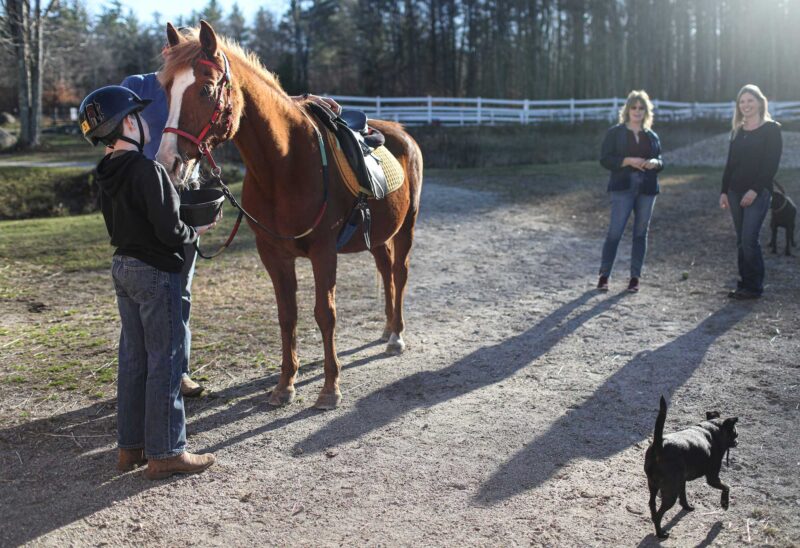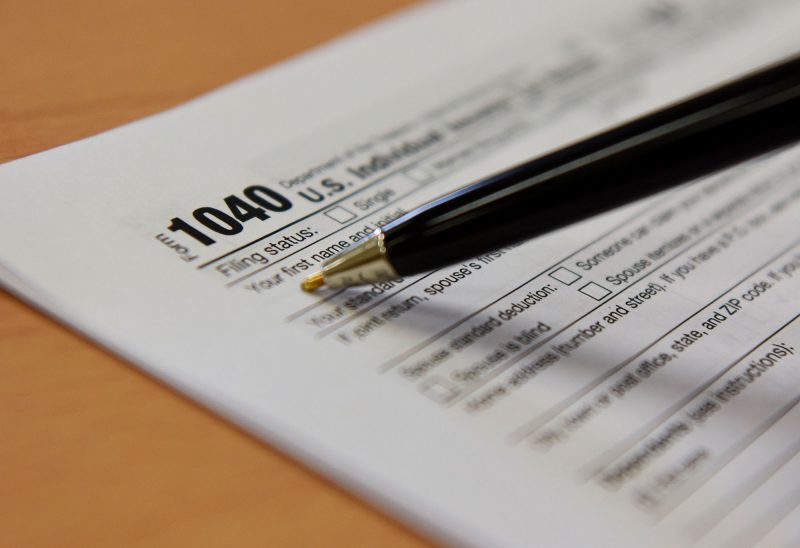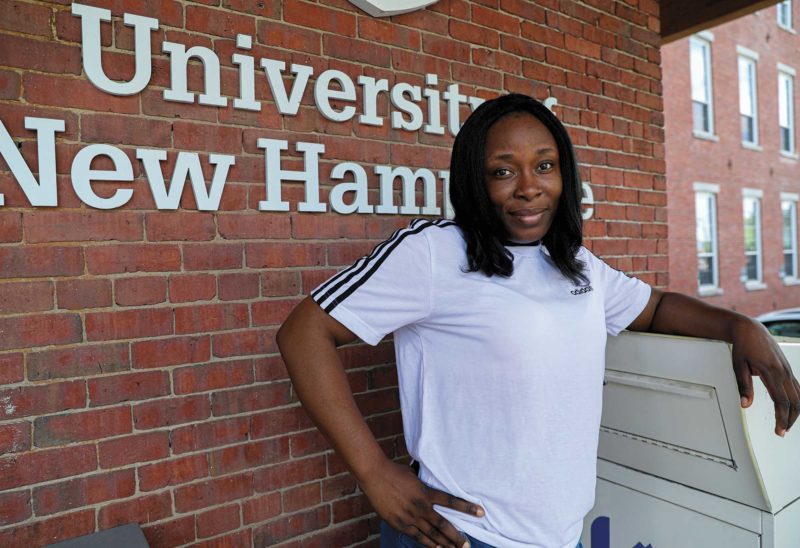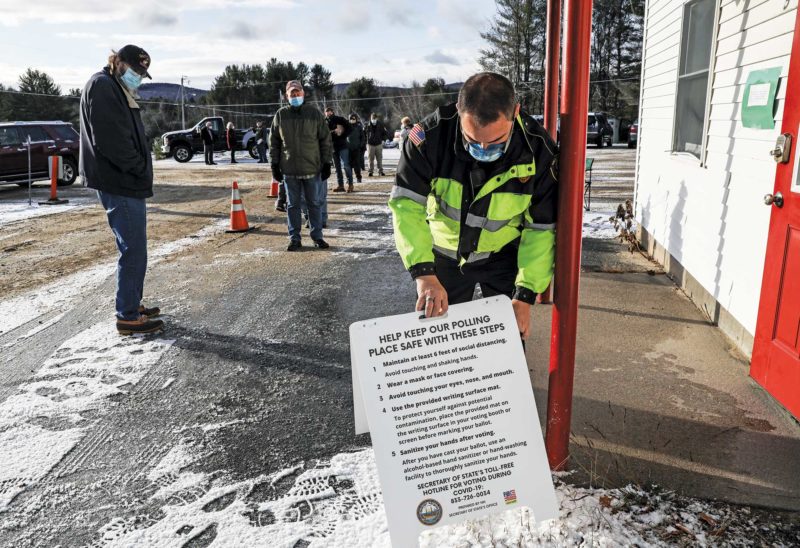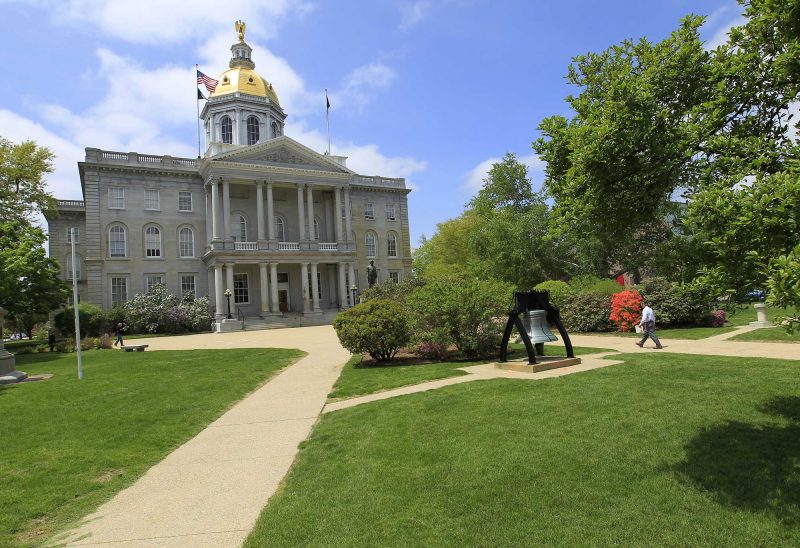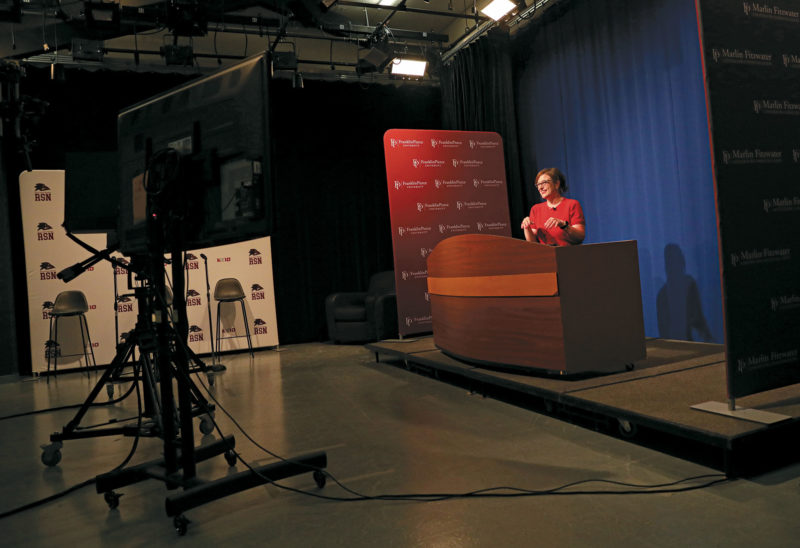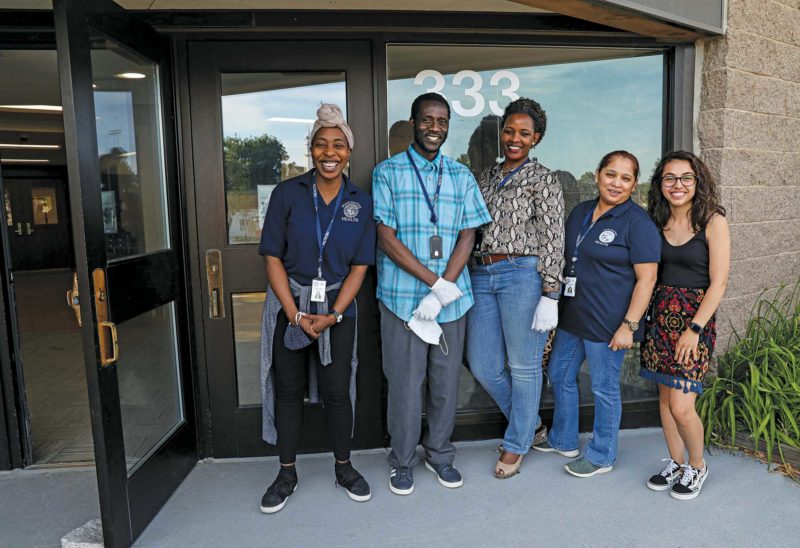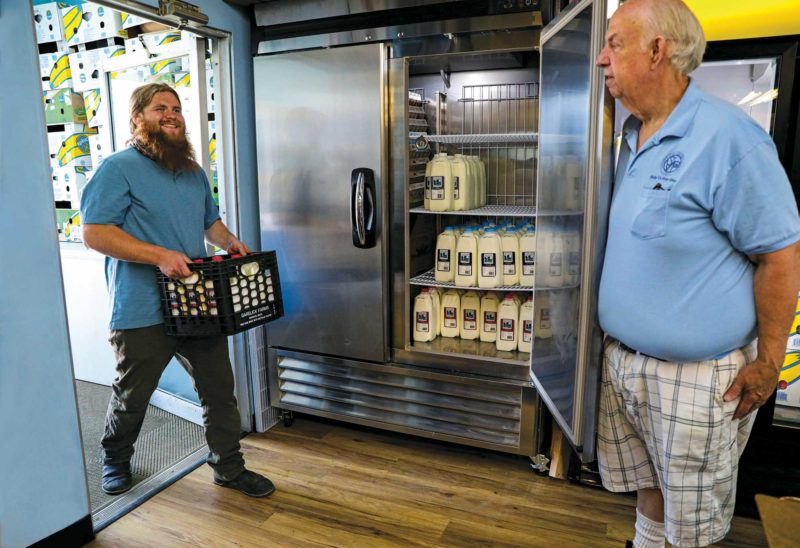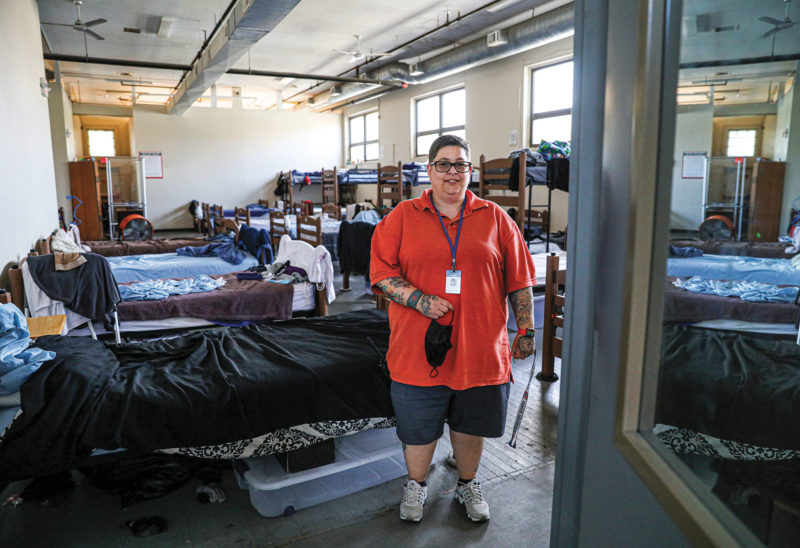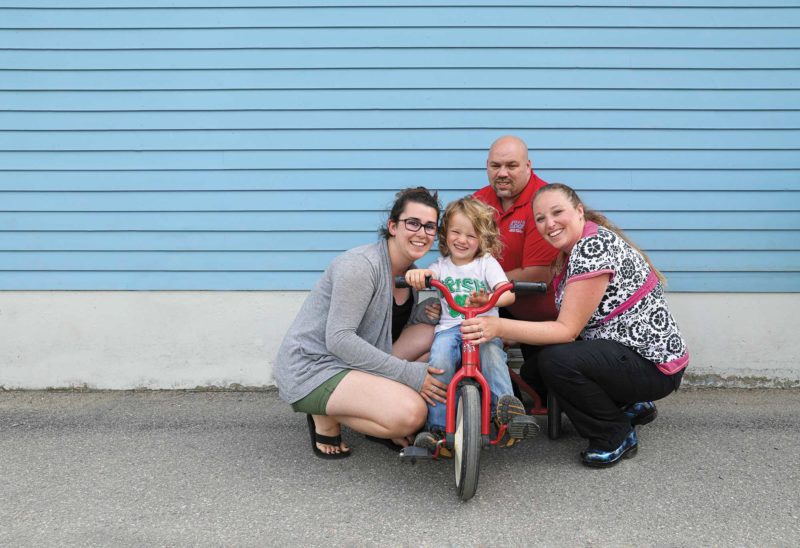In normal times, the ACLU of New Hampshire works on dozens of fronts at once: From reproductive rights to voting rights, from racial justice to immigrants’ rights to free speech to the death penalty to LGBTQ rights.
Since the last presidential election, the organization has found itself fighting far more than the normal number of battles to protect civil liberties. Attorneys and other staff were working at a breakneck pace on a complex array of issues — and having a tangible impact in the Granite State.
And then COVID hit.
And everyone grabbed their computers and phones, left the ACLU’s small warren of offices in Concord — and picked up the pace some more.
“We really had that nimbleness to say ‘This is difficult. Here is what is in front of us. How are we going to move forward?” said ACLU-NH Executive Director Devon Chaffee.
The realities of the pandemic have made many of the issues that the ACLU works on — like voting rights — even more urgent. And many of the people whose rights the organization defends are also among the most vulnerable to the virus.
A grant from the Foundation’s Community Crisis Action Fund is helping to support those efforts.
When the state began releasing data on COVID infection rates, the ACLU collaborated with the NAACP on a letter requesting that demographic data also be released, including a breakdown by race. Nationwide, Black and Latinx people are being infected and dying from the virus at numbers far disproportionate to their representation in the population overall. The same holds true in New Hampshire: Black people accounted for six percent of COVID cases but 1.4 percent of the state’s population and Latinx people accounted for 12.2 percent of COVID cases in New Hampshire while comprising 3.9 percent of the population. The ACLU and NAACP requested that the state address these disparities.
“There are incredibly disproportionate impacts on communities of color,” said Chaffee, who serves on the Governor’s Council on Diversity and Inclusion.
That diversity council urged Governor Chris Sununu to create a task force to address those inequities. A COVID-19 Equity Response Team was established in May and presented a report and recommendations to the governor in mid-July.
An additional grant from a Foundation donor-advised fund is supporting a position of a racial justice organizer at the ACLU who is working closely with Black Lives Matter and others to advance the movement for racial justice in the Granite State.
“The work of our racial justice fellow is focused on supporting, as robustly as possible, these incredible young activists of color who have organized more peaceful protests, vigils, and demonstrations in just a matter of weeks than I’ve seen in my many years in New Hampshire combined,” Chaffee said.
Jordan Thompson is the ACLU’s racial justice organizer — and the founder and director of Black Lives Matter Nashua.
“My top priority with the ACLU as racial justice organizer is uplifting, empowering and amplifying the voices of marginalized people in New Hampshire,” Thompson said. “It is because of the ACLU’s ability to accommodate, their flexibility and their desire to do right by marginalized people in New Hampshire that I have been able to embark on this journey. We have been able to make considerable gains on the issue of racial justice and push people to talk about it in a way that we weren’t before.”
The ACLU of New Hampshire is working with allies to ensure that everyone who wants to register and vote by absentee, mail-in ballot is able to do so in the primary and general elections.
Any voter who requests to vote by absentee ballot in New Hampshire will be allowed to do so this year. The ACLU is part of a coalition that has launched a major campaign — VoteNH2020.org — to help people register to vote and request absentee ballots.
“We knew at the start of this pandemic that this was going to be an issue,” Chaffee said. “Now it’s crunch time. People need to know about the expanded access to mail-in registration and absentee voting due to COVID-19 and people need to be able to access them.”
They are also working to make sure college students in New Hampshire understand their voting rights, and that people who were formerly incarcerated understand that in New Hampshire they become eligible to vote again as soon as they complete their sentences, enabling them to vote even while on probation or parole.
The ACLU’s New Hampshire Immigrants’ Rights Project provides legal services and promotes the rights of detained immigrants. When COVID hit, the ACLU filed an emergency class-action lawsuit on behalf of medically vulnerable people being held by Immigrations and Customs Enforcement in New Hampshire.
“As it became very clear how severe the pandemic was going to be and the risk it was going to pose for everyone who was detained, and as we started seeing outbreaks in immigration facilities throughout the country, we knew we had to act,” Chaffee said.
To date, 21 people have been released as a result of that class-action filing.
The organization does not shy from positions that might spark controversy. Similar concerns about crowding in jails and prisons putting people at risk led the ACLU of New Hampshire to advocate for reducing jail and prison populations in New Hampshire where possible — a move that drew criticism from some quarters.
Chaffee commended New Hampshire Corrections Commissioner Helen Hanks for taking “extraordinary measures” to avoid outbreaks in New Hampshire’s prisons. But, she said, “We are continuing to hold our breath here in New Hampshire,” and the ACLU continues to advocate for more testing in jails and prisons. “It’s impossible to social-distance while in a corrections facility,” Chaffee points out.
Like many nonprofits, the ACLU is navigating the financial implications of increased costs and significant loss of fundraising revenue resulting from the public-health crisis.
“The ACLU is doing critical and courageous work that has become even more urgent (if that is possible) in these chaotic times,” said Foundation Senior Program Officer and Policy Director Deborah Schachter. “They were already doing incredible work for vulnerable people before this public-health crisis, and they have risen to the moment again under really challenging circumstances.”

